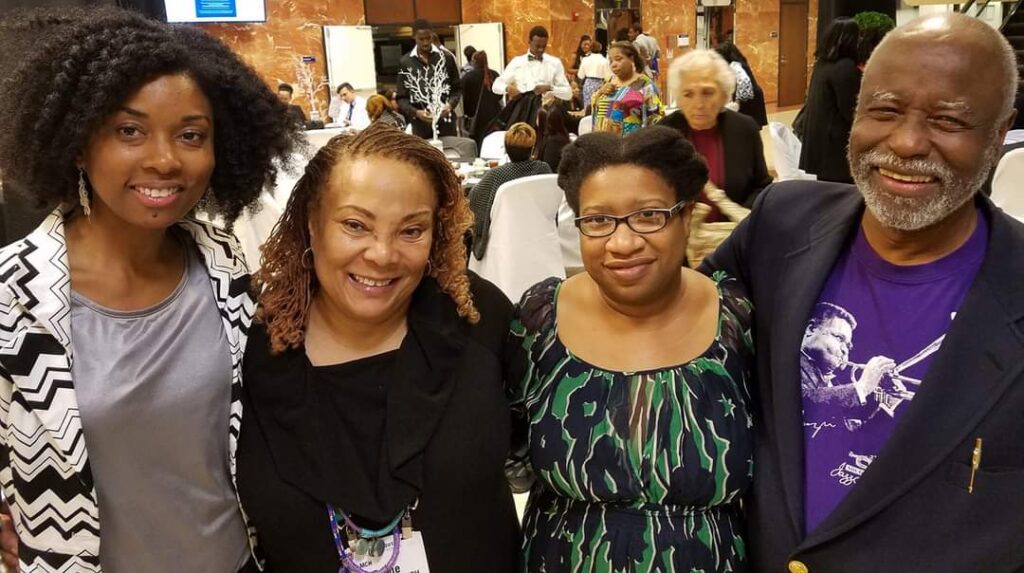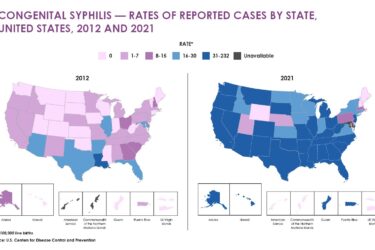
When writing about the 50th anniversary of the revelation of the U.S. Public Health Service study at Tuskegee, I reached out to several Black health care professionals to ask for their perspectives on the study’s legacy a half-century later. Five women — an epidemiologist, two psychiatrists, a surgeon, and an HIV primary care physician — offered their insight. This post shares two of those perspectives, one focused on the man who blew the whistle on the experiment and the other on how the legacy of the experiment at Tuskegee is playing out with monkeypox.
Key takeaways
- The whistleblower who ensured the world found out about the U.S. Public Health Service study at Tuskegee, Bill Jenkins, Ph.D., has also been a role model to Black epidemiologists in showing how to stand up to racism within the system.
- Although the “Tuskegee study” is a convenient shorthand, it’s more appropriate and accurate to refer to the experiment as the ”U.S. Public Health Service study at Tuskegee” to keep the blame on the perpetrators rather than the victims.
- The experiment at Tuskegee lives on in a collective memory of those in the Black community even when they don’t necessarily know the details of the specific study.
- The distrust many in the Black community have toward the health care system is less about this one experiment than is “the everyday interactions” they have today, as “many Tuskegees” are occurring all the time.
- The rollout of the monkeypox vaccine demonstrates how treatment is being denied to Black communities that need it.
Theresa Chapple, Ph.D., an epidemiologist, and director of the Oak Park Department of Public Health in Illinois, pointed me to a story she shared on Twitter in February 2021 about Bill Jenkins, the epidemiologist and Tuskegee study whistleblower who inspired a generation of Black epidemiologists. “Dr. Jenkins would have been 77 this week,” she wrote. “I can’t think about Tuskegee without thinking about his work to end the study, assure the health of those left behind, and most of all, get a presidential apology for all impacted.”
Here is a lightly edited recollection of her tweeted story, written on the second anniversary of Jenkins’ 2019 death:
“At one point, it was said that 50% of Black U.S. epidemiologists could track their career back to Bill. I’m one of those. Dr. Bill Jenkins started as a statistician in the United States Public Health Service in the 1960s. Within one year of working there, he learned of the Tuskegee Study of Untreated Syphilis in the Negro Male. He brought it to the attention of his supervisors and was told to drop it.
He didn’t. He worked as a whistleblower, collating information and alerting the media. He didn’t get extremely far with this approach, so he decided to go back to school for a PhD in epidemiology, hoping he could make a change that way. The Tuskegee study ultimately ended in 1972, when information Dr. Jenkins originally helped collate was published in newspapers across the county. At that time, only 74 Black men were still alive. Dr. Jenkins went back to work at the CDC as an epidemiologist and ran the program, providing long-term health care and support to the survivors.
He also advocated for the program’s expansion to include the wives and children of the participants. Every year, Dr. Jenkins made a trip back to Tuskegee to check on the survivors. I joined him on one of those trips. It was life-changing. The last survivor died in Jan 2004. Currently, there are 11 of their decedents still receiving governmental benefits as a result of the expanded program that Dr. Jenkins championed (based on the most currently available data). He was also pivotal to the U.S. government apologizing to the Black men and their families in 1997.
Dr. Jenkins taught me those governmental epidemiologists are brave, we speak up for injustices, we use science to make our case, and we fight for reparations.”
Stella Safo, M.D., M.P.H., an HIV primary care physician, assistant professor of medicine at Mount Sinai, and founder of Just Equity for Health, noted how the way the study is referred to most commonly is problematic. “There have been a couple of calls, specifically from Dr. Oni Blackstock and others, to be really mindful that we don’t just say the Tuskegee syphilis study because it puts the blame on Tuskegee and those residents, but rather say the U.S. Public Health Service study at Tuskegee,” she said. “The reason that’s important is that it puts the appropriate blame on the United States Public Health Service as the ones who perpetrated that study.”
The study’s legacy is pertinent right now, Safo said, “especially as we deal with a lack of trust around COVID and now monkeypox.” She said she’s never had a patient tell her they don’t have a treatment specifically because of “the Tuskegee syphilis experiment,” but instead they refer to “experiments where they haven’t given treatment to Black people,” Safo said. “So, people may not necessarily have an understanding of the specific study and the way that it’s bled into cultural norms as leading to distrust, but there definitely is a historical remembrance of it.”
Safo echoed what other Black physicians said regarding the many other ways racism impacts Black people’s experience with the medical system:
“We tend to think so much about the U.S. Public Health Service study at Tuskegee as the thing that’s really making people fearful, when, in reality, it’s the everyday interactions that lead to people distrusting our health care system. It’s things like going to the emergency room and getting sub-par treatment or having your doctor not listen to you, or trying to navigate an exceedingly difficult health system that seems designed to disempower you, that lead historically marginalized community members to feel like this system isn’t for them.
While Tuskegee is incredibly important as something that lives in an elusive way, in the collective remembrance of many of the folks that I take care of, the larger point is that we are having many Tuskegees now in the way that care is being rolled out. The latest example is the monkeypox virus that’s spreading in New York. We set up vaccination sites, including in Harlem and Brooklyn, and white, older, rich folks from Chelsea took all of those vaccination sites. It’s things like that that tend to make people feel like, again, the health care system isn’t for them.
There are current examples of discrimination, lack of access to health care, and unequal treatment in health care, that we certainly saw from COVID and now we’re seeing in monkeypox, which drives this historic distrust. Tuskegee is definitely one of the things that people remember, but it’s the more day-to-day that people are looking to.”








